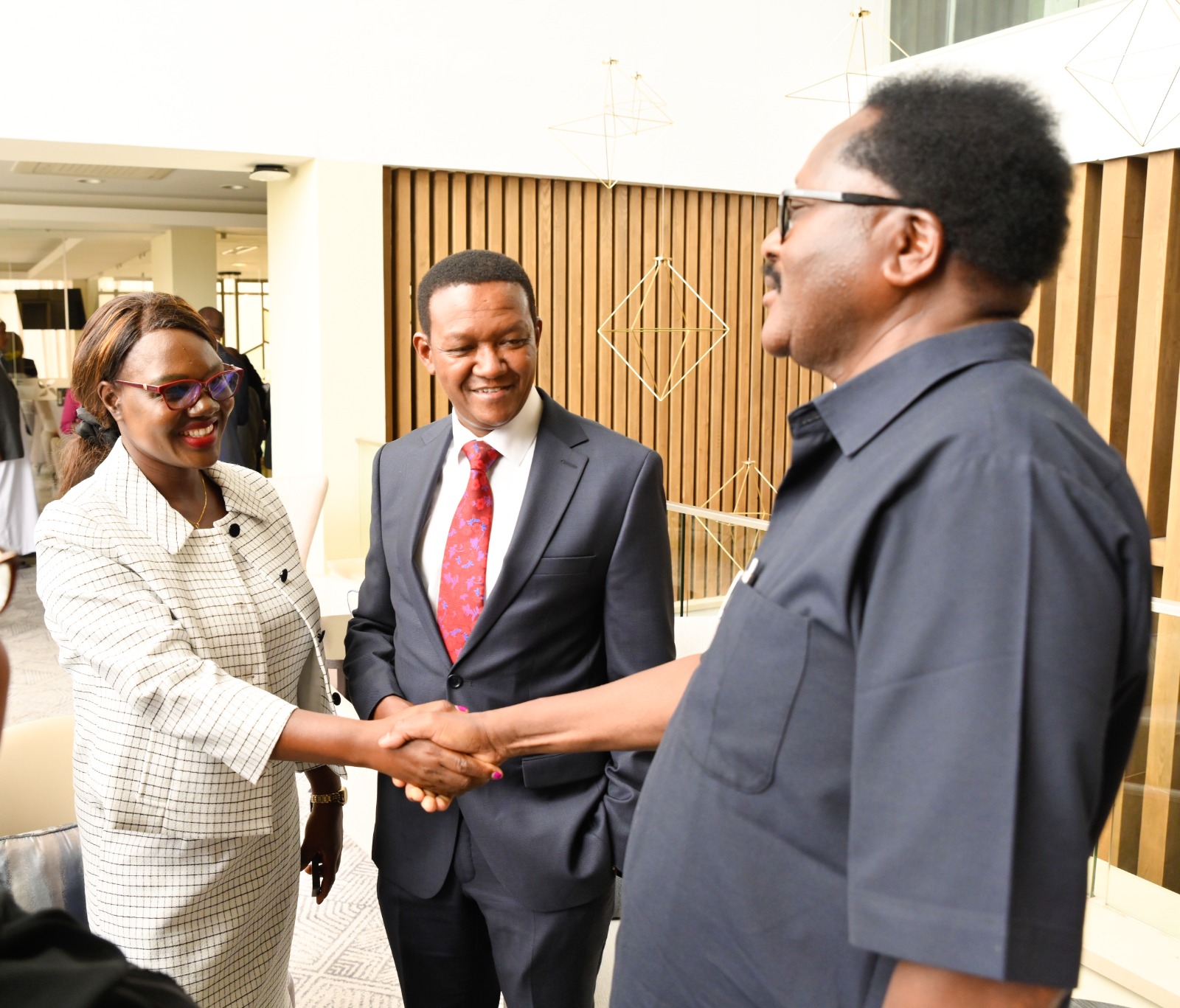𝐒𝐄𝐍𝐀𝐓𝐄 𝐋𝐀𝐁𝐎𝐔𝐑 𝐂𝐎𝐌𝐌𝐈𝐓𝐓𝐄𝐄 𝐏𝐑𝐄𝐒𝐒𝐄𝐒 𝐋𝐀𝐁𝐎𝐔𝐑 𝐌𝐈𝐍𝐈𝐒𝐓𝐑𝐘 𝐎𝐕𝐄𝐑 𝐃𝐈𝐒𝐀𝐁𝐈𝐋𝐈𝐓𝐘 𝐃𝐀𝐓𝐀, 𝐈𝐍𝐔𝐀 𝐉𝐀𝐌𝐈𝐈 𝐆𝐋𝐈𝐓𝐂𝐇𝐄𝐒, 𝐄𝐋𝐃𝐄𝐑 𝐀𝐁𝐔𝐒𝐄 𝐀𝐍𝐃 ‘𝐒𝐓𝐑𝐄𝐄𝐓 𝐂𝐇𝐈𝐋𝐃𝐑𝐄𝐍’ 𝐄𝐗𝐏𝐋𝐎𝐈𝐓𝐀𝐓𝐈𝐎𝐍
The Senate Committee on Labour and Social Welfare has challenged the Ministry of Labour and Social Protection over critical shortcomings in the protection of the country’s most vulnerable populations, including persons with disabilities, elderly citizens in care homes and children at risk of exploitation. The meeting chaired by Sen Julius Murgor (West Pokot) was candid as Cabinet Secretary Dr Alfred Mutua and new Principal Secretary for Children Welfare Services, Carren Ageng’o, were taken to task over delays, policy gaps and structural inefficiencies in a sector long plagued by neglect.
The session was convened to respond to Statements previously raised by Senators Crystal Asige, James Murango and Hamida Kibwana. It quickly became clear, however, that the discussions would go well beyond accountability, evolving into a wide-ranging inquest into the state of the country’s social safety nets.
The meeting opened with the Ministry’s response to Sen Crystal Asige’s Statement, which contained a pointed criticism of the country’s flawed data on persons with disabilities, specifically citing the exclusion of Persons With Disabilities (PWD) in the 2019 national census. “If we are not counted, we do not count,” she said, in a sharp rebuke to the Ministry's delayed response to the Statement she first tabled in March 2023. Dr Mutua conceded that the enumeration had been inadequate, with census officials using the Washington Group Short Set of Questions, a tool that failed to account for children under five and for certain types of disability. While the Ministry now plans to reform registration tools and conduct a dedicated disability census—projected to cost KSh 800 million—Sen Asige dismissed the Washington Group questions, insisting that any credible enumeration must be contextualized for Kenya’s lived realities.
The meeting then turned to the Inua Jamii programme, Kenya’s flagship cash transfer scheme for vulnerable populations, which was recently migrated to the government’s digital e-Citizen platform. Sen James Murango’s (Kirinyaga) Statement questioned whether the new system, despite being more efficient, had alienated the very people it sought to help. Mutua acknowledged that there had been problems during the initial rollout, including identification mismatches and mobile loan deductions that consumed beneficiaries’ payments. While the Ministry has reportedly saved over KSh 1.8 billion annually in bank transaction fees, questions remain about its accessibility and equity. Sen Asige raised further concerns about financial abuse by caregivers, demanding stronger safeguards and accountability frameworks.
The response by Dr Mutua on Sen Hamida Kibwana’s Statement on the alleged abuse of the aged at the PCEA Thogoto Care Home was deemed by Sen Seki Lenku (Kajiado) unsatisfactory. Dr Mutua was tasked to, within one week, provide a comprehensive report that specifically addresses each allegation as raised in the Statement and clearly outlines the findings.
Dr Mutua used the opportunity to unveil the forthcoming Older Persons Bill, 2024 which he said would anchor Article 57 of the Constitution into enforceable legislation. The Bill is expected to set national standards for care homes, define elder abuse and outline penalties for perpetrators, while harmonizing with the pending Social Protection Bill. However, the CS admitted that the absence of an integrated legal framework has long hampered the protection of older Kenyans, many of whom face abuse, neglect and exploitation in silence.
As lawmakers probed the treatment of older persons, the new Principal Secretary for Children Welfare Services, Carren Ageng’o, made her first appearance before the Senate. In a comprehensive presentation, she painted a picture of a department struggling under the weight of expectations and underfunding. With only KSh 1.87 billion allocated against a requested KSh 5.78 billion, and just over 1,000 staff serving a national mandate, the Department’s ability to protect children is severely compromised. Ageng’o nonetheless laid out a vision for the structural transformation of children’s services, including the creation of new specialised departments focusing on child protection, family care and online safety.
She highlighted a national strategy to transition from institutional to family-based care, noting that nearly 90 percent of children currently in homes could be reintegrated with their families if properly supported. The government, she said, is also finalising regulations under the Children’s Act 2022 and developing clear standards for institutions and care providers. But Ageng’o was quick to admit that new threats such as online child sexual exploitation and trafficking are escalating, and current interventions are inadequate.
Continuing the discussion on child protection, Sen Beth Syengo probed what the Ministry was doing about abuse of children with disabilities for street collections by wealthy and influential persons. She stated that they are dropped off on the streets each day to beg, only to be collected later by unknown individuals. Sen Syengo demanded to know whether the government was doing enough to break this cycle of abuse. The Ministry, through one of its directors responded candidly, acknowledging that the situation involves not only Kenyan but also Tanzanian children, and that a past attempt to repatriate some of them sparked diplomatic tensions. Law enforcement and immigration officers are aware of the issue, he said, but systemic barriers and weak enforcement mean that rescued children often return to the streets within weeks.
There was broad agreement that meaningful progress and protections would require not only new laws and better data but also political will, cross-border cooperation and substantial increases in funding.
















